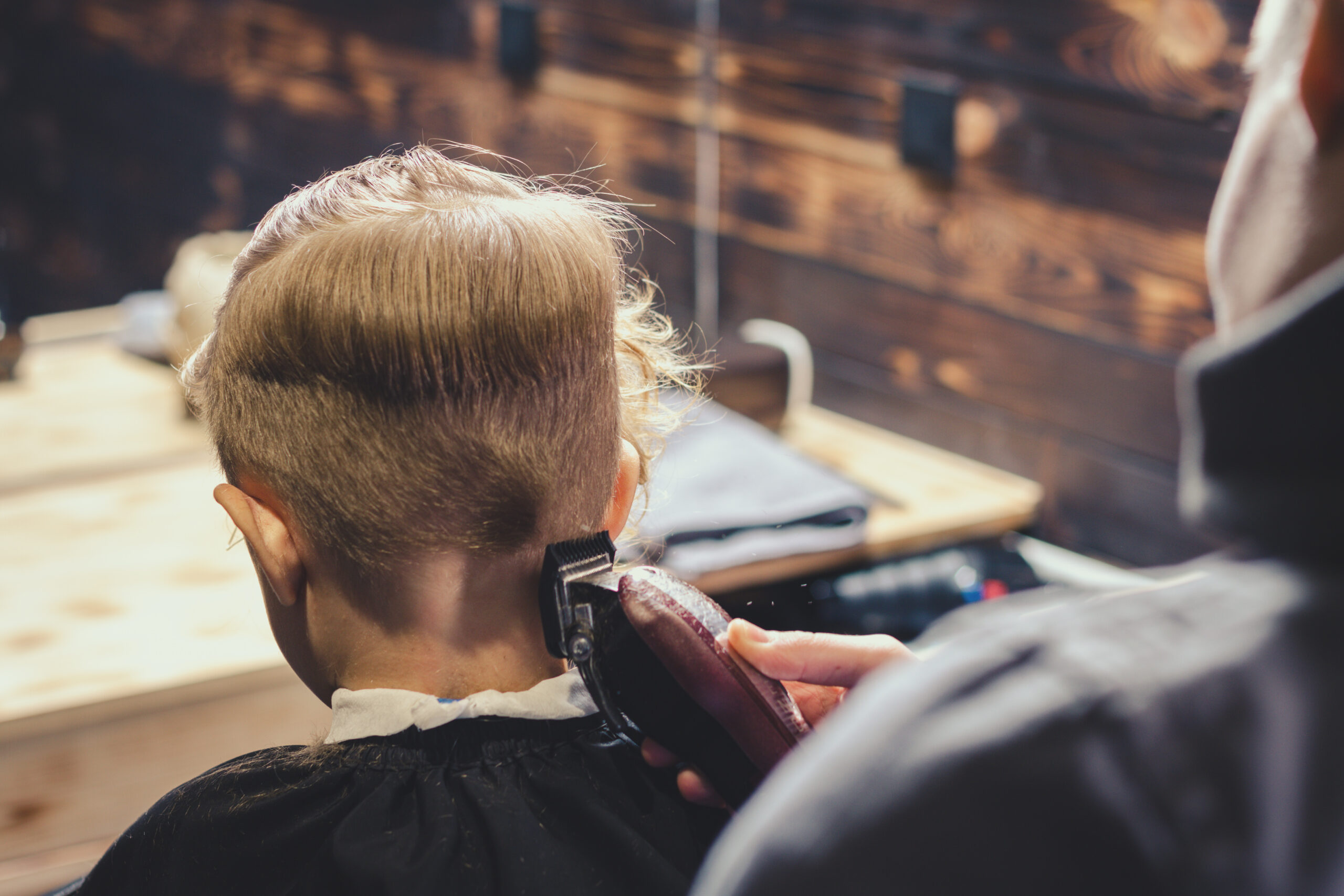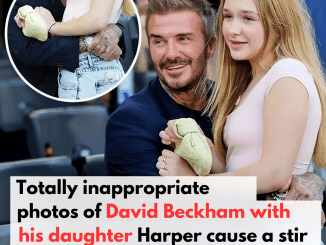A mother’s shock turned into an emotional plea for answers when her 7-year-old autistic son returned home from school with a drastically altered haircut—one she had not authorized. Rachelle Plumley, a resident of Noble County, Oklahoma, expressed disbelief and frustration after her son, Asiah, came back with uneven bangs and a completely different style from the long braid she had sent him to school with.

This unexpected event not only stirred deep emotions for the family but also led to a broader conversation about trust, cultural significance, and accountability in the education system.
For the Plumley family, long hair is more than just a style choice—it is a significant part of their Native American heritage. In Native American culture, hair represents strength and spiritual connection, making it a deeply personal expression of identity. Asiah’s long hair, carefully braided before he left for school, symbolized his family’s cultural pride and beliefs.
When Rachelle discovered her son’s choppy haircut, she was heartbroken and in tears. “My son has only had his hair cut once in his life, and that was a special moment for us,” she shared on Facebook. For Rachelle, the sudden alteration of her son’s appearance felt like a violation of not only her trust but also their cultural traditions.
According to the staff at Frontier Public Schools, where Asiah attends a special education program, the child cut his own hair during class. School officials claimed that Asiah took scissors from behind the teacher’s desk and gave himself a trim. They implied that this was an accident, stating that they had no prior knowledge of his intent to cut his hair.
However, Rachelle wasn’t convinced by the school’s explanation. Asiah, who is autistic and mostly non-verbal, has always been afraid of haircuts. Rachelle argued that it was highly unlikely her son would have done this to himself, especially under the watchful eyes of his three classroom aides. “He wouldn’t have done this on his own. He’s never done anything like this before,” she said.
The incident raised critical concerns about the level of supervision in the classroom, especially for children with special needs. With three aides assigned to help Asiah, Rachelle questioned how her son was able to access scissors unsupervised and cut his hair without anyone intervening. “Even if he did cut his own hair, where were the adults? Why wasn’t anyone paying attention?” she asked.
Parents place immense trust in educators and school staff to protect and care for their children, particularly those who may not be able to advocate for themselves. For many families with special needs children, that trust extends to ensuring that their children’s unique needs are met with patience, care, and constant attention. In this case, Rachelle felt that the school had failed to uphold that responsibility.
In response to Rachelle’s concerns, Frontier Public Schools Superintendent Erron Kauk launched an internal investigation. After looking into the matter, Kauk stated that there was no evidence to support the claim that a staff member had cut Asiah’s hair. “We investigated the situation thoroughly, and no school employee was involved in cutting the student’s hair,” Kauk said. He reiterated that the school takes its Native American heritage seriously and would never allow such an incident to happen.
Despite this official statement, the Plumley family continued to feel that their concerns were not fully addressed. Rachelle pointed out that regardless of who cut Asiah’s hair, the school was responsible for his care and should have been monitoring him more closely. “They need to take accountability for what happened under their watch,” she said.
In the days following the incident, Rachelle’s emotional Facebook post went viral, garnering support from people across the country. Many expressed outrage over what had happened and offered words of encouragement for Asiah and his family. However, as the story gained traction, some individuals began targeting the school and its staff with hate messages and threats.
Rachelle soon took to social media again, this time pleading for the negativity to stop. “I don’t want people to spread hate. We need to spread positivity and support my baby without any hate or threats,” she said. She emphasized that while she wanted answers from the school, she didn’t condone any form of aggression toward the teachers or staff.
A few days after the initial outcry, Rachelle shared an update stating that she had been in contact with the school board, and they were working toward a resolution. Although the details of their discussions remained private, Rachelle expressed hope that the situation would improve and that steps would be taken to prevent such incidents in the future.
“As a mother, I have to protect my son, and I won’t apologize for speaking up for him. But I also want to trust the people who are taking care of him when he’s at school,” she said. Rachelle hopes that this situation will lead to increased awareness and better oversight in classrooms, especially for children with special needs.
For many Native American families like the Plumleys, hair is a deeply spiritual symbol. It represents not just personal identity but also a connection to their ancestors, strength, and cultural heritage. When that connection is disrupted, even unintentionally, it can have a lasting emotional impact.
Rachelle spoke about how her son’s long hair was an essential part of their family’s traditions and beliefs. “It’s more than just hair—it’s a part of who he is and where he comes from,” she said. She hopes that by sharing her story, more people will understand the significance of hair in Native American culture and respect it in the future.
The story of Asiah’s haircut serves as a powerful reminder of the importance of cultural sensitivity, trust, and accountability in schools. While the Plumley family continues to seek answers, they are also focusing on healing and moving forward.
For parents, educators, and communities alike, this incident highlights the need for open communication, respect for cultural practices, and proper oversight, especially when it comes to the care of vulnerable children. As Rachelle said, “At the end of the day, it’s about making sure our kids are safe, loved, and understood.”


